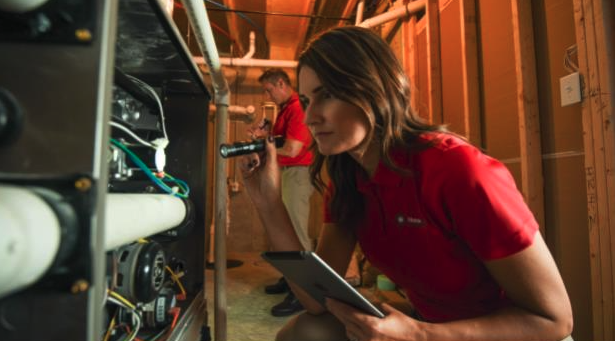The Most Common Home Inspection Myths, Debunked

HomeTeam Inspection Service is setting the record straight, addressing some of the most common misconceptions about the industry. Though the market is cooling, the U.S. is still on track to experience nearly 4 million home sales this year. The majority of homes are inspected before the transaction is complete. However, some homes are not inspected because a buyer waives a home inspection contingency, they don’t understand the importance of an inspection or they think there are other special circumstances that make an inspection unnecessary. Unfortunately, a home inspection is always advisable, and myths and misconceptions prevent buyers from seeking important feedback that can contextualize their purchase and provide other valuable insights. “It is always important to get a home inspection,” said Adam Long, president of HomeTeam Inspection Service. “Some buyers feel that an inspection is unnecessary or they waived the inspection contingency on their real estate purchase agreement and think that means they cannot still get a home inspection, and that simply isn’t true.”
“Only Old Homes Need an Inspection”
Homes have great longevity, but just because they aren’t yet considered old doesn’t mean they can’t have issues. In fact, even homes that are newly built should be inspected.
“A home inspection does not just identify repairs that are necessary due to the age of the home,” explained Long. “There can be inconspicuous issues that are present regardless of the age of the home. Whether the home is a year old or a century old, having a neutral third party perform a whole house inspection ensures that the buyer has a complete understanding of the true state of the home and clear knowledge of any necessary repairs.”
Any home of any age may have issues like poor workmanship, incomplete installations, water damage or electrical risks that can be uncovered by a professional inspector.
“I Don’t Need a Home Inspection If My Home Has Already Been Appraised”
There are major differences between a home appraisal and a home inspection. A home appraisal is a key part of the buying process, as many lenders are interested in verifying that the value of the property actually aligns with the amount the buyer is borrowing.
A qualified appraiser will evaluate factors like the home itself, land it sits on and surrounding amenities to make an informed decision regarding the market value of the home. This training and evaluation process is entirely different from what home inspectors do.
Home inspectors are not agents of the lender — or really anyone in the transaction process. Of course, inspectors serve a crucial role in ensuring prospective buyers have all of the information they need, but the ultimate job of the inspector is to leverage their own expertise and complete a fact-finding mission.
A home inspection evaluates aspects of the home that an appraiser might not think twice about like plumbing, electrical wiring, condition of the roof and strength of the foundation of the home.
A home appraisal protects your lender, but you should get a home inspection to protect yourself as you enter the transaction.
“Anyone with a Construction Background Can Complete a Home Inspection”
While some home inspectors may have construction backgrounds, this is not their only qualification, and it is certainly not the end all and be all for if an inspector will do a good job.
“Home inspectors have specialized training that includes classroom education and practical training before they can begin to complete home inspections independently,” explained Long. “While not all states require licensure, HomeTeam ensures all of its owners are accredited and have access to ongoing education opportunities.”
Home inspectors are specifically trained to complete inspections and have the knowledge necessary to evaluate key details of a home to create a comprehensive, unbiased report.
Understanding the full scope and true value of a home inspection can give you the information you need to find the right home inspector and leverage the inspection report in the purchasing process.



